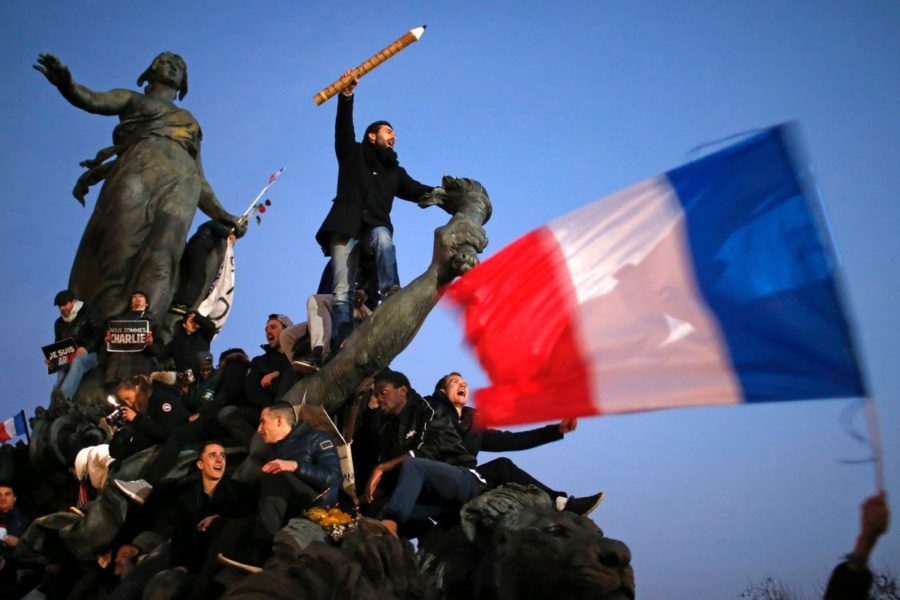A corridor of blood leads to the newsroom of the French satirical magazine Charlie Hebdo. There, on Jan. 7, 2015, in the heart of Paris, the deafening noise of Kalashnikovs blasts preceded the silence of the deaths. The victims were Charb, Cabu, Honoré, Wolinski and Tignous. They were killed for being journalists and cartoonists. Actors of the freedom of speech while practicing their work, they were the main target of two Islamic terrorists who wanted “to kill Charlie” on behalf of Al Qaeda in the Arabian Peninsula.
Freedom of speech is one of the fundamental principles of the French Republic, as written in The Declaration of the Rights of the Man and of the Citizen in 1789. This principle is also in the United Nation’s Universal Declaration of Human Rights established in 1948: “Everyone has the right to freedom of opinion and expression; this right includes freedom to hold opinions without interference and to seek, receive and impart information and ideas through any media and regardless of frontiers.”
This is the freedom, among others, that the soldiers of terror would like us to forfeit. For that goal, they use the pretext that imagery of the Prophet Muhammad is blasphemous, according to their interpretation of the Quran. In French law as well as in International law, the concept of blasphemy doesn’t exist. The UN’s International Covenant on Civil and Political Rights states that the restrictions to the freedom of speech are “any advocacy of national, racial or religious hatred that constitutes incitement to discrimination, hostility or violence.” When Charlie Hebdo was sued by Muslim groups, French courts determined that – despite the shocking nature of the caricatures to the Muslims’ sensibilities – they do not fall within the definition of the restriction of freedom of speech.
In 2005, the Danish newspaper Jyllands-Posten published caricatures of the Prophet Muhammad, causing uproars. Charlie Hebdo republished them in 2006 to show support for their colleagues. Since that time, Charlie Hebdo has been under constant threats from extremists. In 2011, an arsonist set a fire that destroyed Charlie Hebdo’s offices and since then, the publication director has been under special police protection.
In spite of these threats, using humor, ribaldry and derision, the cartoonists have pursued their work with satire towards national and international politics, social issues, and Jewish, Muslim and Catholic religions. Of course, their caricatures did not please everyone every time, but a number of them amused, moved and inspired.
Since the cartoonists’ deaths, “Je suis Charlie” (“I am Charlie”) has become an international slogan for all concerned with freedom of speech. On the other hand, the slogan was altered by those who felt offended by the publication of caricatures of Muhammad. During the protests around the world in the last days, we can read on the banners “Au diable Charlie!” (“Go to hell Charlie!”) or “Je suis Mohamed.” But to say “Je suis Charlie” doesn’t mean one must agree with or like the caricatures published in Charlie Hebdo magazine. It is about defending the right of the journalists to publish them, and the right of each citizen to read any newspaper.
Four days after the attack, 4 million people stood up and walked across France to claim values of freedom of speech and the separation of Church and State. A united and passionate response to terror and violence is echoed in the lyrics of the Song of the Partisans in 1943: “Friend, if you die / A friend comes out of the shadows / in your place.”
Try “to kill Charlie”? Charlie Hebdo fearlessly published a new issue the week after. Regular circulation jumped from 30,000 to more than 7 million copies. Every morning at dawn, people continue to crowd around the newstands to buy it – each reader a beam of light resisting the darkness of ignorance and stupidity.


